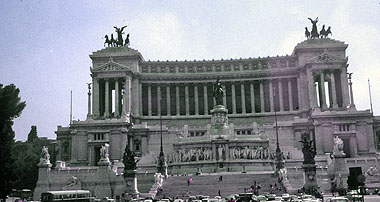![]()
What you must do in this unit
- Read chapter 21 in the textbook.
- Read my notes on nationalism, Garibaldi and the Italian Risorgimento and German unification.
- Study the Questions to Consider and the Key Terms for the week.
- Submit the Required Nationalism paragraph (50 points).
What you can do in this unit
- Listen to some further information about this unit as a mp3 file. You can also read the information as a txt file.
- Read my notes on the Dreyfus Affair, which rocked France at the turn of the century.
- I have available the lecture notes of Professor Thomas Hammond, one of my advisors at the University of Virginia, on Bismarck (*.PDF file). These notes will give you not only a brief summary of Bismarck's diplomacy, but also give you an idea of what a professor's lecture notes look like.
Some videos that you can watch for this unit
- Listen to Thomas Edison's recording of Otto von Bismarck in 1889
- Bismarck: Germany From Blood and Iron (clip)
- John Merriman – Yale, Nationalism
- Professor Lynn Hunt –UCLA, Nationalism and Nation States
- For extra credit please suggest to your instructor a relevant video for this unit of the course. Send the title of the video, the URL and a brief explanation of why you find the video interesting and applicable to the material that is being studied in this unit.
Extra Credit Options
- For up to 25 points of extra credit, in a one-page paper, compare and contrast German and Italian unification process. Please cite your sources.
- For up to 10 points of extra credit, explain the historical significance of Giuseppe Garibaldi in a long paragraph. Why is there no movie about him yet?
- For up to 5 points of extra credit, answer the Bismarck study sheet questions.
- For extra credit, please suggest a relevant website for this unit of the course. Send your instructor the title of the site, the URL and a brief explanation why you find the information interesting and applicable to the material being studied this unit.
Unit Learning Objectives
- Upon successful completion of this unit, you will be able to (1) describe developments in France, Italy and Germany in the nineteenth century and (2) analyze a historical primary source.
